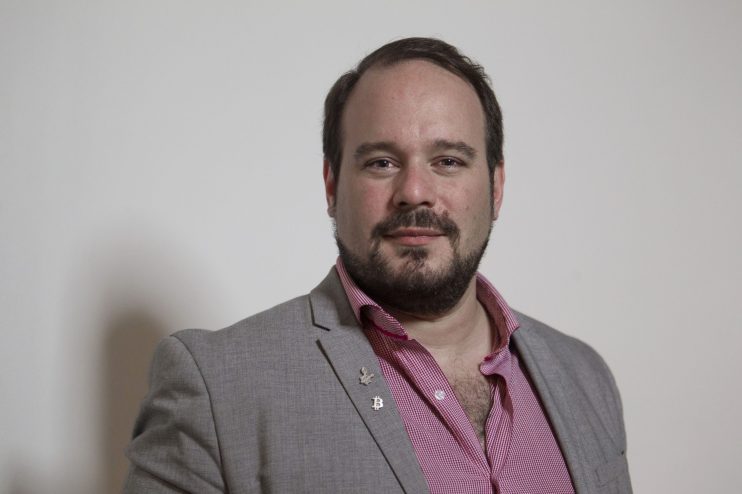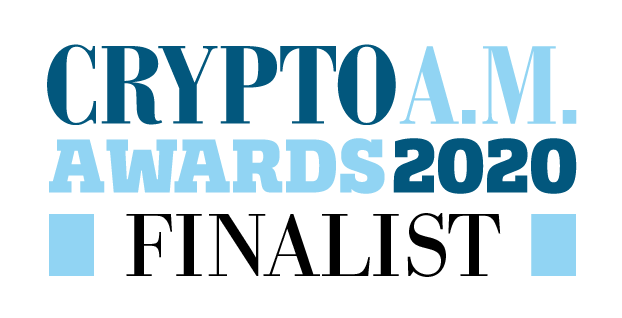The case for decentralized finance

Decentralised Finance (DeFi) has become a trending topic over the last year in the Blockchain world. This trend that started in the Ethereum ecosystem is now beginning to grow on the RSK Network, its Bitcoin counterpart, and other open Blockchains (Ethereum Classic, EOS and Cardano among others). This new use case promises to turn crypto economies into complete financial systems that can provide a service offering on par with that of traditional finance.
Although the “Decentralised” part in DeFi is still an aspirational goal as all existing solutions have at least some level of centralisation, they still have merit on their own. For starters, they inherit, to a certain degree, the openness, transparency, and immutability that Bitcoin inaugurated more than a decade ago. But they go beyond the basic store and transfer of value functionality to provide the ability to handle any digital asset (commodities, stocks, digital versions of local currencies, etc) hosted on the Blockchain using complex financial agreements.
These new capabilities are enabled by Smart Contracts, self-executing business logic that can be attached to any digital asset. Like with any disruptive technology, the first uses replicate existing applications in a new medium. That is how in the early days of the Internet we replicated the postal service in a digital form, giving life to e-mail. We also built e-commerce sites that mimicking the model of physical shops.
In the same way, all these Smart Contract-enabled Blockchain platforms are creating a digital twin of the world’s financial system, a new kind of Internet, the Internet of Value. The foundational layer was brought to us by Bitcoin, a kind of digital gold, a neutral, digital, and global reserve of value that is censorship-resistant and anybody can access. And in the current COVID-19 crisis, Bitcoin offers us one of the few places where people without access to financial markets or physical gold can protect their
wealth for the medium to long term.
But storing value longer term is only the prerogative of less than one-third of the world’s population, and even for that third the implied volatility of a store of value asset is not suitable for their short term economic activity. Maybe that is why the most successful DeFi solution is Stablecoins; these crypto-assets follow the price of the most relevant currencies worldwide, providing a native hedge against volatility. The most successfully adopted stablecoin, USDT, has surpassed Bitcoin in daily traded volume. Its model is very straightforward: for every dollar issued on the Blockchain, there is one dollar to back it up in a bank account. Once again, the decentralization is more of a journey than a fixed objective, and openness of access remains the core attribute of these solutions. Since the launch of USDT, many
interesting alternatives have emerged that proposed a model where cryptocurrency acts as collateral, and the issuance is controlled by a Smart Contract, strongly increasing the level of decentralization. The precursors in this model is MakerDAO, which created the DAI token backed by ether (ETH) on Ethereum, followed by MoneyOnChain that created the first bitcoin (BTC) backed stablecoin on RSK last year, and for sure many more will come.
The interesting thing is that thanks to these Stablecoins, a breadth of open financial services are emerging. While lending and liquidity provision are the most popular applications in the DeFi ecosystem, we are seeing this offering expand at a rapid pace, en route to completing the full range of financial services that exist in our society. The openness, transparency, and progressive disintermediation of DeFi reduces counterparty risk, making financial services cheaper, faster, and more available. But the true value of this ecosystem is composability. The synergies of having all these money legos implemented into a standardized framework can offer a level of innovation and efficiency impossible to achieve in the traditional financial infrastructure. Once a new component (ie: payment gateway with a country’s financial infrastructure) is added, the whole ecosystem benefits from it, speeding up time to market and global expansion exponentially.
All these DeFi applications are already serving the early adopters but as we know, Bitcoiners, Ethereans, and other crypto pioneers account for maybe half a percent of the population, and self-served ecosystems can only grow to a certain point. On the other hand, for people already served by the traditional financial system, this new financial infrastructure offers an incremental value. So a question emerges, where does the true disruption and potential of this nascent ecosystem reside for broader society?
The answer is: Financial Inclusion. Due to its limitations, the traditional financial system leaves billions of people unserved or underserved. Also, its fragility becomes more evident in times of crisis like we are living in right now; Coincidentally enough, Bitcoin was launched amid the 2008 economic crisis and the DeFi ecosystem is being born a pandemic that is triggering an even bigger economic crisis all over the world. In a context where underdeveloped countries and regions will suffer the biggest impact and where their population sees their economic value evaporate due to hyperinflation and bad monetary policies, this new global and inclusive financial infrastructure becomes more relevant than ever.
DeFi is what we have been building and chasing since the very beginning of our project and it is at the core of our purpose. We are working on decentralizing the financial system because the true value for people and society is openness and neutrality. In 2012, I used Bitcoin for the first time. I was in Argentina, where we had capital controls. It was impossible to get money in and out and a friend of mine told me, “I’m so excited about Bitcoin! Why don’t you try it out? Open an account on this website (it was blockchain.info).” I gave him the address and he sent me a lot of Bitcoins, and after that, I sent the Bitcoins back. We didn’t have to ask for permission from anyone, we just did it, and the whole process took an hour. Sending around 5,000 Bitcoin from Silicon Valley to Buenos Aires and back! This is how a truly global and open financial system should work.
At IOV Labs we are extending the Bitcoin financial system to be a fully open financial system through our platforms RSK Smart Contracts, RSK Infrastructure Framework (RIF), and Taringa.
We are living in a moment where the traditional financial system is facing a lot of challenges and, in some places, is collapsing. It is very important to have the tools to offer an alternative, not only relying on centralized technology and systems, but also their decentralized counterparts. The timing is right, we have been working for many years, and the tools are coming to production now. Of course, nobody could have predicted COVID-19, but it is happening at the same time that society needs it, so we are very happy that there is a way we can be here to help. That is our main focus, to see how we can realign all of our efforts behind the needs of society.
We are taking Bitcoin to the next level with RSK and RIF, making a complete
financial system that holds true to the same values of openness and neutrality. We do not judge people, we provide these financial services to everyone, regardless of their social status, nationality, or cultural background. It is a financial system for everybody and that is why we are building DeFi for Bitcoin on RSK. We believe Bitcoin is the best way to protect the wealth of the people, especially those who are the most vulnerable in our society. The next decade will be instrumental in
crystallizing the financial system of the future.
Author Diego Gutierrez Zaldivar, Co-Founder & CEO of IOV LabsFor further information visit www.iovlabs.org

